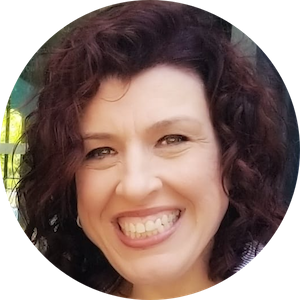“I work at Google.”
For many, those four words carry a certain cachet. The same goes for Facebook, Amazon, Apple and Netflix. The five tech giants, lumped together under the acronym FAANG, have secured their place on the S&P, in the everyday lives of people all over the globe and as a coveted line on any techie’s resume.
These prestigious places to work may have no issues finding top talent, but working in a goliath firm may not be every technologist’s dream, explains Eric Kinariwala, CEO and founder of healthtech startup Capsule.
“It’s often easy to get lost in a big organization,” Kinariwala said. “Whereas our teammates have a direct and significant impact on our products and the overall consumer experience, which is orders of magnitude larger than the impact one may have at a bigger technology company or FAANG.”
The opportunity for increased ownership is just one secret weapon in an arsenal of perks that recruiters from small and mid-sized companies use to lure talent away from big tech. But in an industry where applicants are known to be selective about their next opportunity, the work itself is just one facet to creating a firm that people want to join.
According to Denyse Pashup, senior talent acquisition leader at data platform Zebra Technologies, companies must also build a supportive culture so employees stick around.
“In my opinion, HR professionals can’t build a culture alone, but they can get out there and ask employees why they choose to stay and what they love about working for the company,” Pashup said. “We ensure that we ask employees how the company can do better — and then do something with that knowledge.”
To gain more insight into how HR leaders can compete with the big five for top-tier technologists, Built In connected with Kinariwala and Pashup. They laid out how they’ve approached recruitment, where they’ve seen success and how other companies can follow their lead.
Download this remote onboarding toolkit to access actionable resources you can implement and see the impact of immediately.
Denyse Pashup, Senior Talent Acquisition Leader for North America

Some background: Denyse Pashup is a senior talent acquisition leader for Zebra Technologies, a company building end-to-end solutions — from barcode printing to mobile computing — across multiple industries. The growing company consists of over 8,000 employees spread across 100 offices all over the globe, and in 2020, it was featured on Fast Company’s Best Workplaces for Innovators list.
Accomplished tech professionals have a lot of career options. When sourcing talent to fill open roles, how do you differentiate Zebra Technologies from the big five?
At Zebra, we make a pointed effort when interviewing candidates to focus on what drives them both personally and professionally, carefully taking inventory of characteristics that align with Zebra’s core values. As Zebra’s talent acquisition lead, it is my team’s job to differentiate ourselves and identify the candidates that are the best fit for our company and help them see how they can benefit from joining us.
Jobs can sometimes be limited in scope at larger companies, so you won’t necessarily get the same exposure across the business that you can in a smaller company, gaining more visibility in the process. Overall, the opportunities may be greater and the experience deeper at a company like Zebra.
It’s also best to not underestimate the power of exciting work. Once we share the work Zebra is doing for our customers in the healthcare industry, the sports arena or with some of the world’s largest retailers and logistics companies, candidates are enthusiastic about joining this amazing culture. The work we are doing at Zebra is truly making a difference in the world and it is easy to see we are a great company for the best and brightest talent making it all happen.
At Zebra, we’ve made and continue to make a large investment in training and developing our talent across the organization. These investments help employees individually grow in a way that benefits the company in accomplishing its goals, but also helps employees grow in their profession.
Zebra compensates our employees competitively and provides a comprehensive benefits package that helps our employees care for themselves and their families, and helps them plan for their futures. Because of the kind of work we are doing, our company has seen enormous growth and success, so Zebra is positioned well in the market with candidates that enjoy stability and comparable benefits to those of larger companies.
“Hire professionals that can genuinely articulate the company’s purpose to candidates, share their own personal journeys within the company and feel comfortable sharing why they stay.”
To what degree does company culture influence the average candidate’s career choices? How can HR professionals at smaller companies help to build that culture and communicate it to candidates?
Every candidate is driven by different things and we often hear from prospective employees that they are drawn to Zebra because of our culture. Zebras, as we like to call them, want to make a difference and do meaningful work. They also value balance and flexibility, and want to work for a company where they can grow and work with individuals that share a passion for the kind of work they are doing.
We focus on the things that make Zebra a place where individuals want to work and our culture is a true differentiator. We have employees that have enjoyed long careers with Zebra, and we are an organization that celebrates individual wins in addition to company wins. We also value diversity and have made big strides in encouraging diversity of thought across our workforce.
In my opinion, HR professionals can’t build a culture alone, but they can get out there and ask employees why they choose to stay and what they love about working for the company. We also ensure that we ask employees how the company can do better — and then do something with that knowledge. I believe the best cultures are those that are authentic and allowed to develop organically while being shaped through the examples set by great leaders.
What advice would you give to other talent acquisition leaders who are competing with FAANG companies for talent?
As a talent acquisition leader, hire professionals that can genuinely articulate the company’s purpose to candidates, share their own personal journeys within the company and feel comfortable sharing why they stay.
As a company, know who you are and have a strong vision. Understand the profiles that excel in your culture and hire against those, making sure you are interviewing to determine if a candidate possesses the skills and the competencies that will make them successful in your organization. Take time to determine if a candidate’s values align with those of your organization so they have the potential to be happy, fulfilled and able to reach their full potential, no matter the size of the company.
Some background: Eric Kinariwala is the CEO and founder of Capsule, a healthtech company aiming to make the pharmacy experience more seamless. Instead of waiting in line at the local drugstore, patients can fill their prescriptions through Capsule, which then hand-delivers each order. The healthtech startup also coordinates with health insurance providers, alerts users to coupons and keeps track of when a prescription needs to be refilled. With $250 million in funding, the company is growing fast and expanding its team in cities across the United States.
When sourcing talent to fill open roles, how do you differentiate Capsule from the big five?
Capsule differentiates itself in several specific areas among top engineering and product talent:
At Capsule, our teammates have a direct and significant impact on our products and the overall consumer experience, which is orders of magnitude larger than the impact one may have at a bigger technology company or FAANG. The size of our team and the pace at which we make decisions and operate enables people to contribute to our mission on day one. It’s often easy to get lost in a big organization, but in every sprint at Capsule, engineers are only working on the items that are maximally impactful to the company and the consumer. Along with greater impact is greater ownership. The scope of work a single individual is responsible for is large, regardless of their level or position within the company.
Because individuals have greater ownership, responsibility and impact, they are able to accelerate their pace of learning and career growth faster than would otherwise be possible in a larger organization. Capsule believes in recognizing and rewarding people for their accomplishments early and often. We don’t have byzantine processes to promote people, increase salaries or to grant additional equity. Because the company is growing extraordinarily rapidly, the pace of learning and career advancement are also rapid.
We have been deliberate about our mission, culture and values as a company from the very start. Capsule’s mission is to build a pharmacy that works for everyone. For the hundreds of millions of people who experience the familiar frustrations of interacting with the pharmacy and for every stakeholder in the healthcare system — doctors, hospitals, insurers and drug makers — who also have friction with the system the way it’s set up today.
We have two company values that form the foundation of our culture: “everybody needs some looking after sometimes” and “winning together.” We believe consumers deserve the peace of mind that comes from having their health looked after so they can live their best lives. Similarly, our team makes the same promise to one another — to anticipate needs enabling each other’s best work.
We also believe one team member winning doesn’t mean another loses. Our expectation is that people are both accomplishing ambitious objectives and sharing those successes with their teammates so we all get better and faster, together.
Capsule is upending a space that hasn’t seen innovation in over 100 years. While consumers experience a simple and delightful experience, there’s tons of complex and sophisticated technology that powers that experience. More than the technological complexity, Capsule is well-suited for people who want to build technology to solve hard, intractable, high-impact business problems with a daily tangible impact on users.
“Your job as a talent acquisition leader is to quickly identify the candidate’s career aspirations and whether there is a match between what the company needs and the experiences a candidate is looking for in their next career opportunity.”
To what degree does company/engineering team culture influence the average candidate’s career choices? How can HR professionals at smaller companies help to build that culture and communicate it to candidates?
Cultural and values alignment is essential for both the candidate and the company, as both determine whether there’s a mutual fit. The cultural context will be one of the most important factors in whether the individual can be successful at the company and whether the company can enable the individual to do the best of their careers — and that should be everyone’s goal.
Smaller companies should be deliberate and intentional in how their culture, which is really the values and behaviors, comes to life every day to support the company in accomplishing its mission. It’s the definition of what “good” looks like and it’s the behaviors that create individual and collective success.
It’s important to clearly communicate the company’s values and culture through every step of the recruiting process, from job descriptions and initial conversation, all day way through the interview process. Our goal is to identify candidates who have exceptional technology talents and who are aligned with our core values of “everybody needs some looking after sometimes” and “winning together.”
What advice would you give to other talent acquisition leaders who are competing with FAANG companies for talent?
Your job as a talent acquisition leader is to quickly identify the candidate’s career aspirations and whether there is a match between what the company needs and the experiences a candidate is looking for in their next career opportunity.
Often through that discovery process, we learn that the candidate is really looking for a smaller, nimbler, higher-impact environment. We also learn that some folks want the relative stability and perks that come with FAANG. Rapidly growing companies aren’t for everyone at every point in their career, and we try to learn motivations early in the process so we can support people in finding their right next step in their career -— whether that’s at Capsule, at a big tech company or elsewhere.
Use our template to seamlessly calculate your own employee retention rate.





